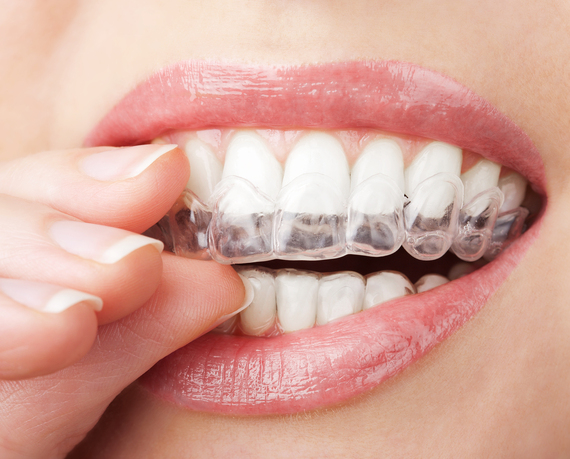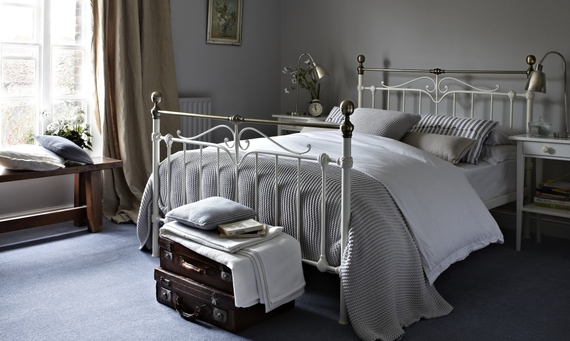Spending too many nights tossing and turning? Well, you're not alone.
The cure for daytime fatigue or inconsistent sleep patterns can often be linked to daily routines, overall lifestyle of an individual and some health predicaments faced by some individuals. Sometimes people struggle to sleep, some fight to stay asleep and others are buried in so much workload that they hardly have time for enough sleep. In order to curb such patterns, it's important to find those triggers that could cause insufficient sleep and deal with them before they escalate to harmful health conditions.
People experiencing insufficient sleep are prone to suffer from chronic diseases such as hypertension, depression, diabetes, reduced quality of life and productivity. In fact, studies have also identified sleep disorders as one of the common health issues faced by most Americans. An estimated 50 to 70 million Americans suffer from sleep disorders that limit their daily functioning as human beings, thereby affecting their health in the long run. Taking sleeping pills isn't the ultimate solution either, because they only provide temporary relief to deeper problems like insomnia.
On the other hand, stress hormones can also have a tremendous impact on sleep patterns. In order to curb such sleep problems, different factors come into play, including food, environment, exercise and a general healthy lifestyle.
While different people have various methods that help enhance their sleep, here are a few ways to improve your sleep patterns.
1)Create a Workable Sleep Routine or Schedule
Just like habits, a sleep routine helps your mind and body to stay adapted to a particular resting period. Once you create a pre-bedtime routine, you'll prepare your body for your assigned sleep time; this includes some activities to help shift your mind from work mode to sleep mode.
With an aim to create an internal regulator that sends sleep signals to your body it's important to take practical steps. Shut down the television, computer or other activities that includes work at least 30 minutes before sleep time.
According to Arianna Huffington, it's important to have at least eight hours of sleep every day. In order to make this a reality, she turns off her iPad, cell phone and other electronic devices at least 30 minutes to 1 hour before bedtime. In her book, The Sleep Revolution, Arianna further asserts that by renewing our relationship with sleep, we'll be able to improve our health, job performance, relationships and happiness.
2)Adjust Your Eating Habits
To get a good night's rest, it's important to feed your body with the right food and drink that will regulate proper metabolism. Avoid eating heavy, spicy, fatty or other meals that could bother you at night.
Caffeine and alcohol should be avoided if your aim is to cultivate quality sleep patterns. Consider switching to water or other herbal tea and drinks. However, to avoid many trips to the bathroom, don't drink too many fluids before going to bed.
The case of cultivating a healthy eating habit isn't just a one off arrangement. It takes conscious dedication and commitment to improve your overall life and create an intentional plan that would keep you focused on eating the right food that positively impact your health.
3)Use Night Guards When Necessary
For some people, their sleep could be disrupted by consistent grinding and clenching of their teeth. This medical condition called bruxism, when it occurs regularly can cause damage and other complications in oral health. Research shows that one in ten Americans grind their teeth at night, often without an atom of awareness of this act.
In extreme cases, the pressure on the teeth causes it to become misaligned which could eventually lead to tooth loss, affect the jaw or cause a change in the appearance of your face. These risks result from untreated teeth grinding and should be attended to avoid further risk.
Bruxism has different causes, including stress and anxiety; and in some cases a sleep disorder such as sleep apnea. Some dentists recommend night guards for their patients, to protect their teeth from grinding during sleep and prevent other health conditions that may arise.
Before any actions, it's important to pinpoint the cause of such teeth grinding. If it's a result of stress, consider taking practical actions that reduce stress, including an exercise program and visiting a therapist when necessary.
4)Create a Conducive Sleeping Environment
A good sleep environment can have a significant influence on sleep quality and quantity. Several factors such as light, room temperature, decoration and noise, all contribute to make up a sleep environment. Consider having good positioning for lights in the room, including a bed side lamp for minor reading before bed.
Don't forget to use the right pillows and sheets to create a better sleeping environment that supports your sleeping process. Make sure that your sleeping space isn't converted to a work area; otherwise this would defeat the aim of getting a better sleep pattern.
Minimize any noise that might come from surrounding rooms, your television and electronic devices. A pre-bedtime moment of meditation helps prepare your mind, body and soul to embrace a sleep environment that is conducive for you.
5)Include Aerobics in Your Daily Routine
With constant research on different ways to curb inconsistent sleeping patterns and disorders, Phyllis Zee, M.D., director of the Sleep Disorders Centre at Northwestern Medicine came up with a study that examined the effect of aerobic exercise on middle-aged and older adults with a diagnosis of insomnia.
According to Zee, "Around middle age, sleep begins to change dramatically. It is essential that we identify behavioural ways to improve sleep. Now we have promising results showing aerobic exercise is a simple strategy to help people sleep better and feel more vigorous."
Regular exercise is generally good for metabolism, weight management, sleep and overall balance. By inculcating aerobics and other similar exercises as part of your lifestyle routine, you'll be more likely to sleep better.
6)For the Workaholic: Delegate and Hire Your Weaknesses
Most workaholics get stuck in their numerous workload and some end up getting burned out from too much work. In order to create a work life balance and a better sleep pattern, it's important to delegate your workload. Successful people have found better ways to sleep more and this has helped them to create a healthy work life balance and live happier live in the process.
Consider working with a resourceful support team or at least an assistant that can ease you of some of your work. Once you're able to hire more people, prioritize your work according to your strengths and get other efficient experts on board to create an overall success structure and pattern for your business or office work.
Statistics continue to show a rise in disruptive sleep patterns and also sleep disorders. To avoid extreme sleep problems, it's important to take precaution and adapt some preventive measures to avoid further occurrences in the health. Some practical steps include doing regular exercise, choosing the right mouth guards in cases of teeth grinding, eating healthy foods, and inculcating sleep routines and daily habits that help prepare you for quality sleep patterns.



